The Innovators: Stax Artist Spotlights
24-Carat Black
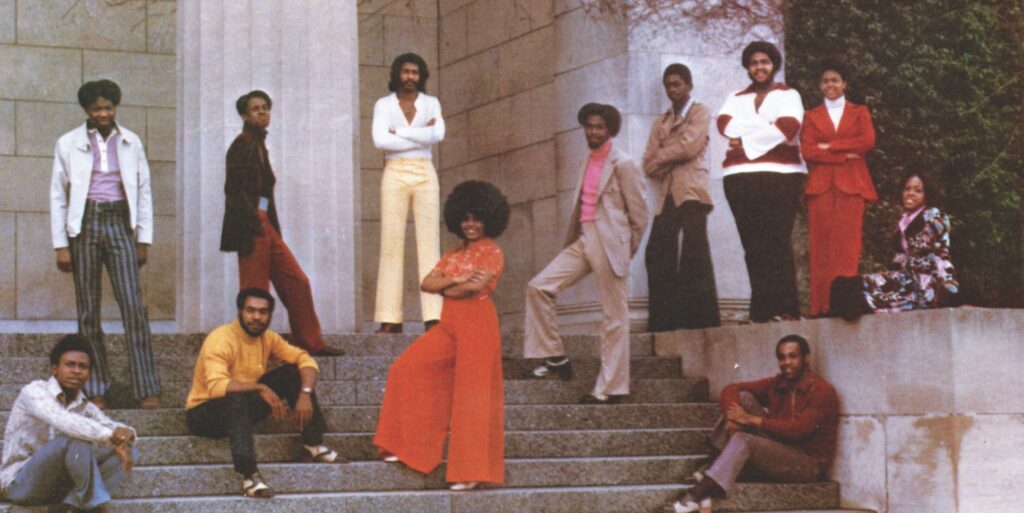
24-Carat Black
Regarded in their heyday as an act well outside the domain of Stax Records’ vision for soul, The 24-Carat Black delivered on a promise of satire, drama, and poignancy in song. Equipped with a high-concept stage performance and a deliberately rousing debut LP, among many soul music fans of the group’s era, The 24-Carat Black were hardly even regarded at all. Unsurprisingly, the group’s high-brow intentions presented a narrow opportunity to garner anything resembling mass appeal. Famously, however, the group’s obscurity, along with a lack of promotion from a label entering into imminent peril, is the very circumstance that, over time, aided the group’s sole official release as one of Stax Records’ defining cult classic albums, sought after by DJs, producers, and otherwise collectors of oddball listening material. And, in finding an audience decades removed from its initial release, The 24-Carat Black live on in the realm of soul music as a Cinderella story, proving that some groups are simply ahead of their time.
The group began in 1965 as The Ditalians, a quartet of friends attending Sawyer Junior High School in Cincinnati, Ohio, including Tyrone Steels, James “Sonny” Talbert, and brothers Larry and Willie Cottrell. The four young men refined their routine enough to capture the support of a local record store owner, who in turn lobbied his relationships within the regional music industry as a manager, booking the fledgling soul outfit in clubs in and around Ohio. A similar surge of support came from basketball superstar Oscar Robertson, then a member of the Cincinnati Royals. Robertson’s larger-than-life status afforded The Ditalians premier placement in the hierarchy of teenage talents in their area. But Robertson, born in Charlotte, Tennessee, provided an even more valuable connection: studio time in nearby Nashville. The young musicians, backed by Ohio-based Saxony Records, traveled south, where they completed a session led by producer Dale Warren.
The resulting single, “Philly Dog New Breed,” backed with “Egypt Land,” pushed The Ditalians’ profile to greater heights, demonstrating the quartet’s prowess as a veritable party band. Regional radio play followed along with two follow-up singles,
“I Gotta Go” in 1967 and “Baby That Takes The Cake” in 1969. While maturing by the manner of onstage and in-studio experience, The Ditalians also increased their ranks, adding a rhythm section to replace the need for studio musicians and adding female vocalists to complement their core of male leadership.
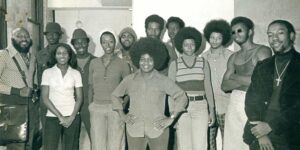
24-Carat Black
Sisters Princess and Patricia Hearn joined the group with their friend Kathleen Dent after endearing themselves to the original bandmates at a local talent show. Beyond their impressive vocal skill, the Hearn sisters proved valuable in another way; their older brother, a well-established adult with connections to Detroit’s bustling enclave of soul music professionals, befriended a savvy young producer looking for a young group to carry through his vision. Coincidentally, that producer, Dale Warren, was already acquainted with The Ditalians.
Warren, a native of Detroit, was born adjacent to the city’s soul music royal family, as his aunt, for a time, was married to Motown Records founder Berry Gordy. In 1961, he stepped head-first into the family business, working at the label. When his aunt, Raynoma Liles, moved on from her union with Gordy, she took her residual musical expertise and her nephew’s eager labor into her subsequent relationship with entrepreneur Eddie Singleton, who founded Shrine and Jet Set Records. Soon, Warren cemented his status as a power player when his compositions reached rhythm and blues giant Jackie Wilson. Although that brush with success never resulted in the star crooner cutting Warren’s tracks, the young songwriter, arranger, and instrumentalist eventually parlayed his influx of popularity into a regular gig at Stax Records, an enterprising Southern label that was closing out the 1960s as a hitmaking heavyweight stable in the genre. Warren, primarily a violin impresario, lent his instinct for blending the more down-to-earth elements of the emerging sound of street-wise Black American youth with the sensibilities of symphonic music and positioned himself as a secret weapon of breakout star Isaac Hayes. A seminal collaborator on Hayes’ Hot Buttered Soul, The Isaac Hayes Movement, and …To Be Continued LPs, Warren added his touch to several other artists on the label, including William Bell, The Emotions, The Soul Children, and The Staple Singers. In 1972, he’d take a more significant leap, leading an orchestra to accompany stage acts as a dedicated arranger and conductor at the Wattstax concert at the Los Angeles Coliseum.
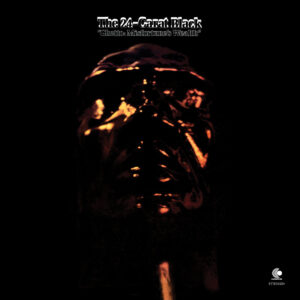
Ghetto: Misfortune’s Wealth
Upon rediscovering The Ditalians, Warren revamped the group and developed a traveling stage show, transposing his elaborate orchestral soul onto the young band, drawing inspiration from vaudeville to create a theatrical variety show that reflected sociopolitical themes relevant to the consciousness of the inner-city African-American existence.
Benefitting from a string of successes and an environment at Stax Records wherein Isaac Hayes’ ambitious, high-art, long-playing application of soul found repeat commercial viability, Dale Warren impressed upon the label’s de facto leader Al Bell that he deserved carte-blanche to conceive a product from the newly minted 24-Carat Black.
With rehearsals for the album revving up in 1972, Warren split time between shepherding the Ohio-based group and tending to his recurring duties in Memphis, while also leaving his wife to wed lead vocalist Princess Hearn. Once preparations concluded, the young ensemble took refuge in Ypsilanti, Michigan’s Morgan Sound Theatre to conduct recording sessions for what would become Ghetto: Misfortune’s Wealth. Warren adapted the group’s long-winded stage show into a sorrowful operatic audible opus, complete with spoken interludes, instrumental asides, and lyrical content that addressed the ills of both urban blight and plight. Sonically, the album defied the standard conventions of soul. For evidence, look no further than the omission of any singles issued to radio and jukeboxes by the Stax Record Company, despite releasing the album on their Enterprise imprint in 1973.
With their album released to a relative whimper, The 24-Carat Black continued out on the road as the record company they called home limped fiscally into 1974. Meanwhile, the group, at the mercy of chitlin circuit promoters, devoid of a signature single to introduce them to the marketplace, were met with a varied perception. Sometimes, they rode in limousines, more often the circus-like outfit of young adults piled, packed tightly, into the back of rental vans, cramped shoulder-to-shoulder with their instruments. Their rollercoaster lifestyle came to a halt when Warren no longer could funnel money from Stax Records to their rogue operation, prompting members of The 24-Carat to return home with their hope in their hands, as Stax Records’ fortunes ran out by 1975.
Although the group disbanded, original member Tyrone Steels rallied later additions William Talbert, Ernest Latimore, William Gentry, and Gregory Ingram to create Shotgun, a funk group whose abilities netted a much more lucrative showing across released on MCA, ABC, and Montage Records in the later 1970s and 1980s. Other members re-emerged in search of individual stardom.
Despite The 24-Carat Black’s unceremonious end, the group’s sound crept back into the zeitgeist within the 1990s, as a global community of vinyl enthusiasts instituted a lexicon of hard-to-find grooves heralded Ghetto: Misfortune’s Wealth within the holy grail of hidden soul gems. And, with the advent of hip-hop, the record became fertile fodder for sampling, piquing the interests of producers such as Eric B., The RZA, Dr. Dre, and more. Among prominent uses of The 24-Carat Black’s music, hip-hop group Digable Planets lifted a virtually unchanged drum solo by Tyrone Steels from the song “Foodstamps” as the bridge for their chart-topping single “Rebirth of Slick (Cool Like Dat).” As a result of the group’s newfound importance, surviving copies of their album fetched exorbitant prices on the record resale market, where it remains as one of the more expensive collections in Stax Records’ catalog.
Written in history as an anomaly for their delayed ubiquity, the appetite for The 24-Carat Black aided in the interest for reissue label Numero Group to acquire and release previously unheard recordings from Dale Warren intended to be billed under The 24-Carat Black banner. In short order, hip-hop producers would begin sampling those songs, too. In 2017, Kendrick Lamar lifted two separate portions of The 24-Carat Black’s “Poverty’s Paradise” for two compositions found on his Pulitzer Prize-winning album DAMN. adding yet another asterisk to the legacy of a group whose failure to launch is perhaps its most important quality.
The Innovators: Stax Artist Spotlights ARCHIVE
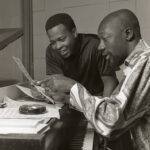
Stax Records — After 1975
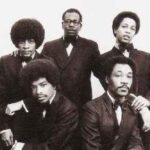
Ollie & The Nightingales
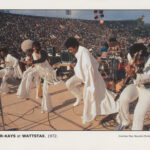
The Bar-Kays
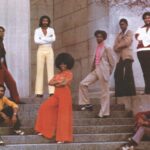
24-Carat Black

The Temprees
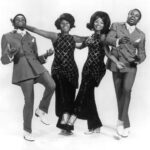
The Soul Children

The Mar-Keys

Delaney & Bonnie

Stax Groups – The Astors, Jeanne & The Darlings & the Charmels

The Mad Lads
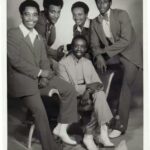
The Dramatics
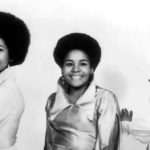
The Emotions

Johnnie Taylor
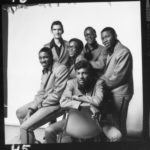
The Bar-Kays

Otis Redding
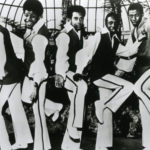
The Dramatics
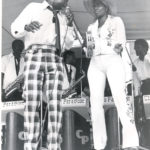
RUFUS & CARLA THOMAS
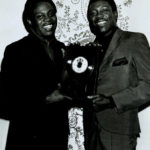
Sam & Dave
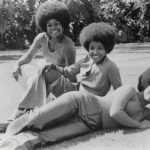
The Emotions


